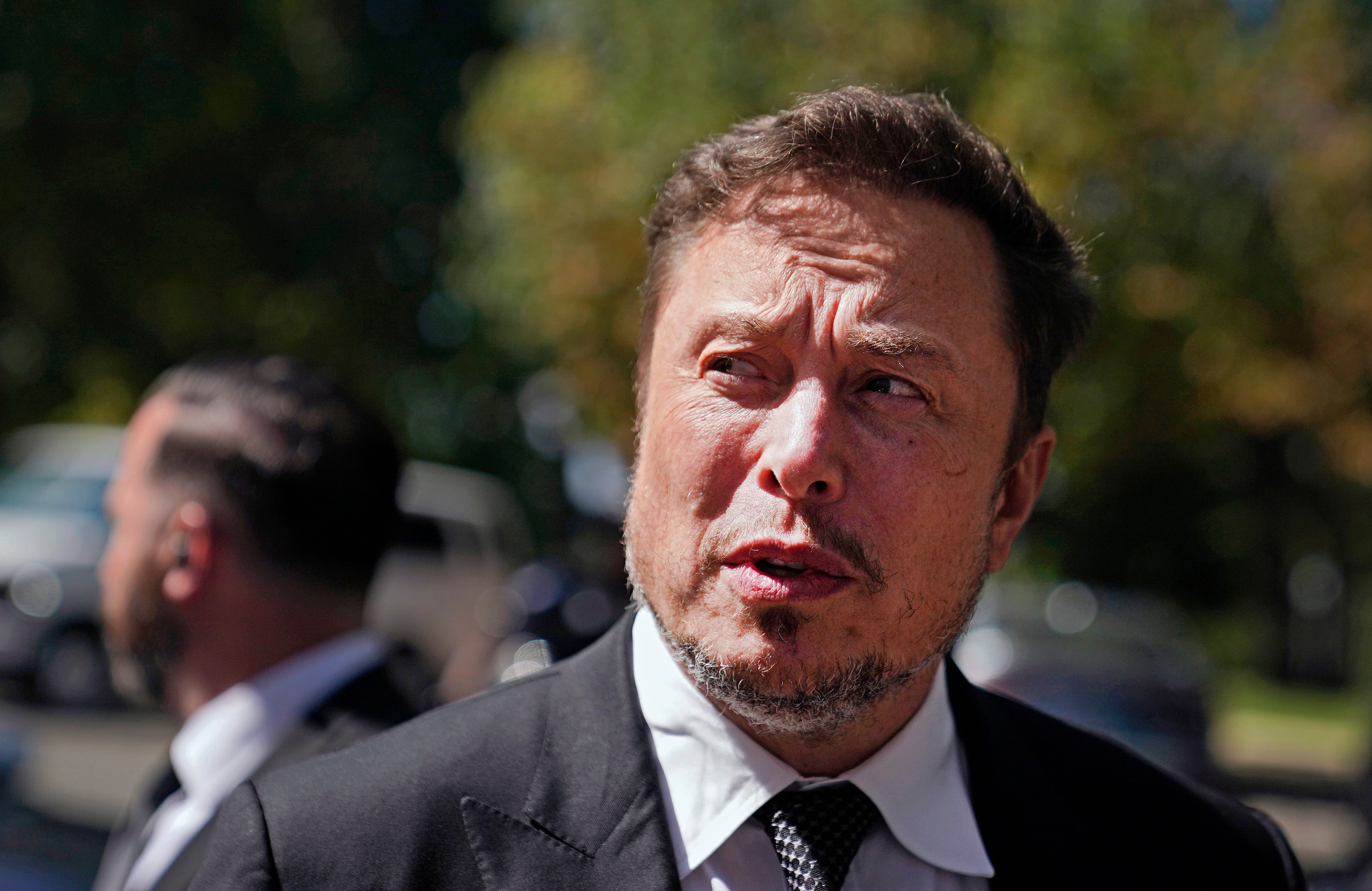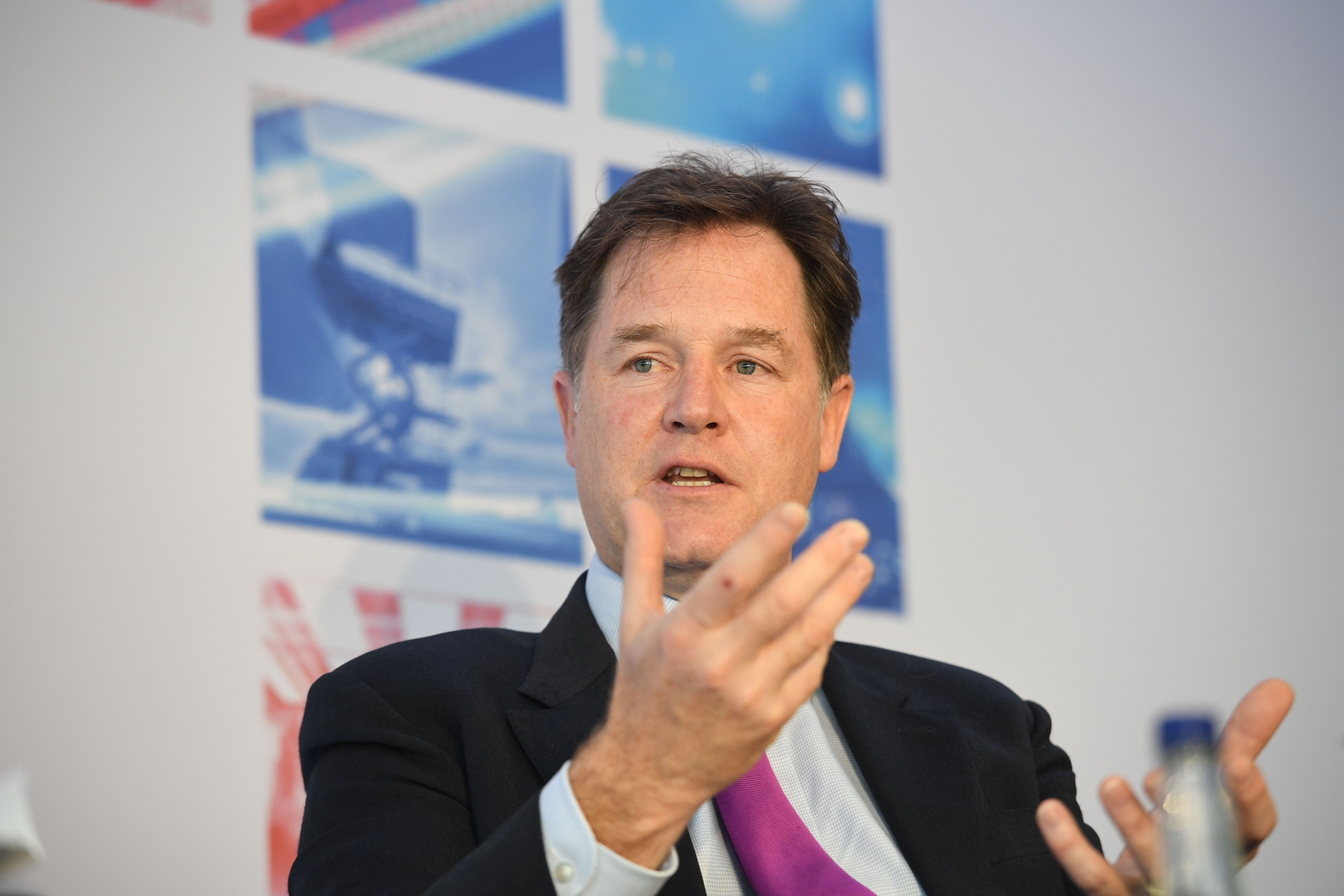Elon Musk is a risky star draw at Rishi Sunak’s AI summit — what will the shindig actually achieve?
The first global summit on AI safety has grand ambitions and Elon Musk as the star name on the guest list – but governments and industry bosses have their own ideas about how to control a technology that could change the world, writes Andrew Griffin


Rishi Sunak will today bring together leaders of the tech world for a two-day summit to discuss the dangers and opportunities of artificial intelligence – a conversation the world urgently needs to have.
Ahead of its start, Number 10 announced the get-together will finish with a live-streamed chat between the prime minister and Elon Musk, a star signing, but one that is hardly risk free given the owner of X and Tesla’s famous incaution about what he sometimes chooses to say.
But the potential risk is apparently worth the reward for Mr Sunak, who had been searching for a big name to answer criticism that his AI Safety Summit will be a poorly-attended disappointment.
The world has a deep and potentially existential need for an organised and collaborative approach to the risks posed by artificial intelligence. Some of the risks of AI might be overstated, but not all; problems such as the threat of mass unemployment are exactly the kind of issues that require government and businesses to work together.
The stated aims of the UK's AI Safety Summit at Bletchley Park – which will bring together representatives from governments, companies and researchers – are twofold. The first is to "consider the risks of AI, especially at the frontier of development" and the second is to "discuss how they can be mitigated through internationally coordinated action".
And the government is saying the right things about how to do that. In a speech ahead of the opening of the summit, Michelle Donelan, the science and technology secretary, said: "Science fiction is no longer fiction; science fiction is now science reality”. “The summit will be a moment where we can move this discussion forward – forward from here speculative and philosophical to the scientific and the empirical".
In the year since ChatGPT launched and propelled artificial intelligence into the mainstream, this tone has been sorely lacking: too much of the conversation has been conducted in the abstract and largely meaningless tone of speculative fiction.
But almost all of the discussion about the summit has been about who is coming – or, rather, who isn't. Most of Europe's leaders have snubbed it, and so has Joe Biden.
In reality, however, the guest list is strong. The chief executives of the world's best-known AI companies will be there: both DeepMind and OpenAI are sending their top staff. Elon Musk's attendance is strange and risky but a get nonetheless. And while the US president might not be attending, Kamala Harris is; the UK has even managed to bring representatives from China, something few thought would happen.
It is impressive that the government has brought together 100 people, but that might just mean us hearing 100 versions of the usual: AI is a powerful technology, and we must try and harness the benefits while limiting the risks.
But one difficulty is that nobody seems to want to help out Rishi Sunak. This week, the Biden administration revealed a sweeping executive order that offered much of what experts have been asking for, aiming to build an environment that both encourages the development of AI but places important restrictions and oversight to ensure that it is used safely. But the US chose to announce that at an event all of its own, with no reference at all to the UK's rules.
Companies will feel the same. The biggest have the world's attention already, and so can announce their own work on safety on their own time; smaller ones will want to avoid having their messages swamped by the flood of news coming from the UK government and others this week.

Nick Clegg, the UK’s former deputy prime minister who is now a senior executive at Meta, the owner of Facebook, has already called for restraint in any attempt to control tech companies. On the eve of the summit, which he is attending, Mr Clegg compared concerns about AI with the “moral panic” over video games in the 1980s.
In truth, the UK is a minor player in the technology industry, but it is an artificial intelligence superpower. It has the third biggest AI sector in the world, which includes perhaps the most accomplished company in the form of DeepMind, and its companies are raising money at an impressive rate.
The UK's combination of excellent universities and rich financial sector mean that it has the foundations to continue to sit among the world leaders.
But with individual governments and tech companies all working at their own pace and to their own agendas, it is unclear how much summits like today’s can achieve. Elon Musk may say something that gets Rishi Sunak into trouble – but the bigger risk is that not much will be said at all.






Join our commenting forum
Join thought-provoking conversations, follow other Independent readers and see their replies
Comments